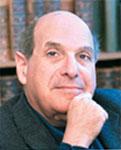
As we learn from the Gospel of Luke (4:23), advice to medical professionals was being proffered by at least the first century. In a synagogue at Nazareth, so we are told, Jesus spoke these words: “Surely you will quote me this proverb, ‘Physician, heal thyself.’” In today’s world, this proverb can still be applied in multiple circumstances, many of which could hardly have been imagined two thousand years ago.
In a number of instances, the application is quite literal. So: “In part, it’s a case of ‘physician, heal thyself.’ Mindfulness programmes are being incorporated into medical training to help health care professionals, whose increasingly heavy workload is leading to more burnout and blunders” (from the South China Morning Post). Sometimes, it comes down to a single doctor, as it were taking things into his own hands: “Physician, heal thyself—one doctor took this Biblical proverb to heart and did just that, literally. Nine years ago Farid Saad was asked to evaluate a new testosterone replacement product while working on the issue of male aging … The then 46-year-old clinical researcher and endocrinologist offered himself as a human ‘lab mouse,’ since no other medical staff volunteered” (as reported in Singapore’s Business Times). Think how different history might have been if King David availed himself of this sort of therapy!
Not only real doctors are in need of “healing,” but fictional ones as well. Thus, when it comes to the main characters of the TV drama Grey’s Anatomy, there’s this: “It’s not so much ‘Physician, heal thyself’ as ‘Physicians, shut up,’ as the terminally self-obsessed doctors continue their narcissistic rampage through the corridors of Seattle Grace” (from The Sunday Times of London). And again, from the same publication: “We are reminded that no matter how pretty the doctors from Seattle Grace Hospital may be, you really wouldn’t want them coming anywhere near you with a scalpel. When they are not ruining the final hours of a poor woman with a brain tumour, they are dragging their personal lives into the wards to drown out and upstage their patients … Physician, heal thyself. Or shut up.” Okay, we get it.
Out of the world of entertainment to the often even more entertaining world of politics. There is, for example, this from The Korean Herald (with the headline, “Who Wears the Masks These Days—Villains or Victims?”): “Why is there not more incredulity when the Security Council, G8, or ‘six nations’ claim that they can sort out world problems? A psychologist would probably diagnose these doctors of international ills as themselves having a serious condition, collective guilt. As the Bible says, ‘Physician, heal thyself.’ And it is interesting that this injunction from Luke suggests a geopolitical not medical meaning—‘Whatsoever we have heard done in Capernaum, do also here in thy country.’”
Thus far we’ve heard nothing from the reliable world of sports, but fear not! Sports columnists will not let us down. From an account in The Sun we learn that Liverpool’s coach Rafa Benitez should take to heart this advice. For, even as he berates his players for arguing with members of opposing teams, he fails to recognize how “ironic” this is; after all, “it was Benitez’s inability to button his own lip during his rant at Alex Ferguson last season that prompted a run of 11 dropped points in seven games … Physician, heal thyself.”
Finally, from The Guardian of London comes this “old joke about a famous clown who, suffering from depression, visits the doctor. The doctor doesn’t recognize the celebrity without his makeup and says that the best thing he can prescribe is a visit to the circus to watch the famous clown at work. Physician, heal thyself, indeed.”

